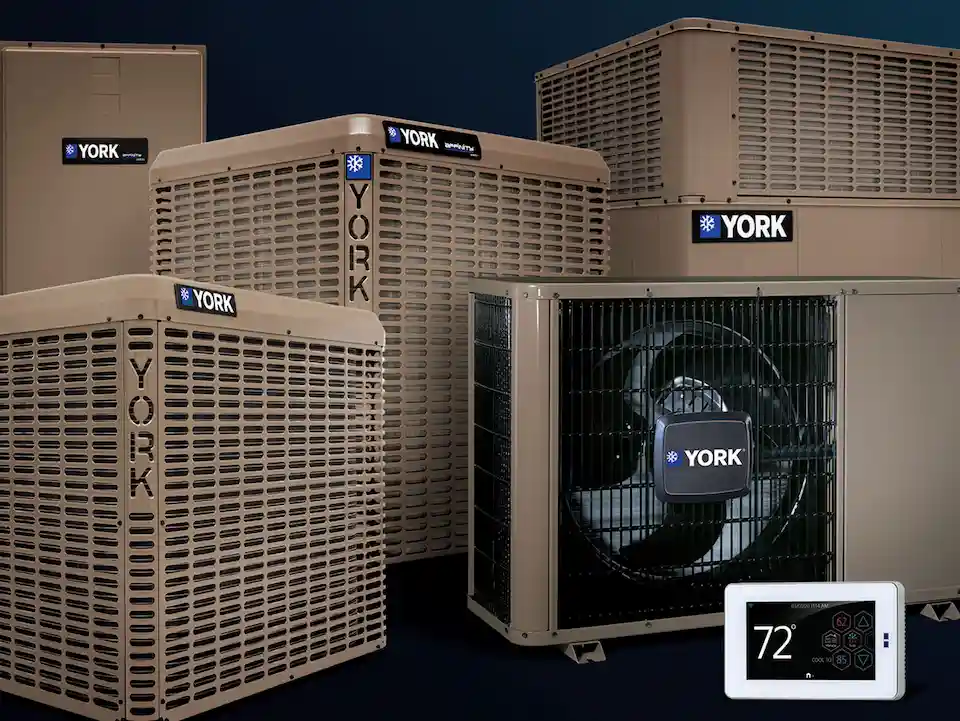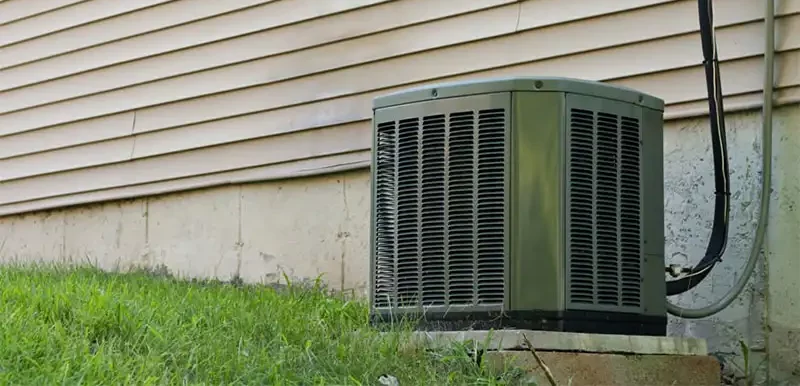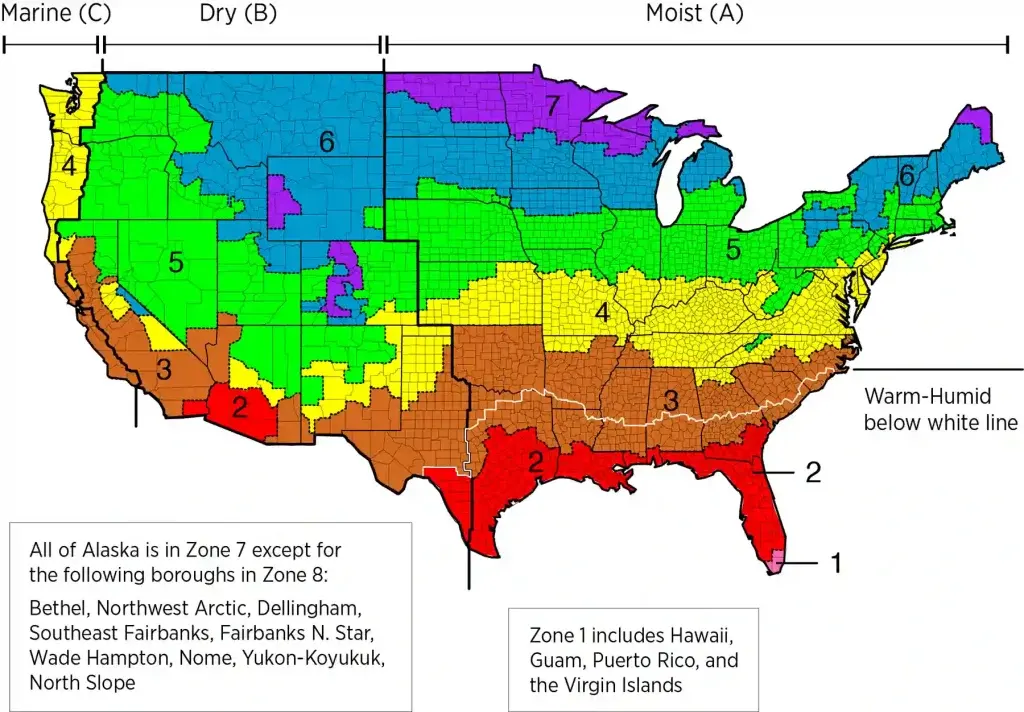September 19, 2022
Heat Pump Replacement Cost In 2023

A heat pump is often looked at as an eco-friendly way to heat and cool a home because it can save you energy costs. But, just like anything else in your home, there’s going to come a time when you have to replace a heat pump.
When this happens, you want to have an idea of the average heat pump prices as well as the heat pump installation costs you’re going to face, and the type of heat pump you’ll need to avoid sticker shock.
We’re going to look at several different types of heat pumps, how much they cost to install, and how Bowman Mechanical Services can help with heat pump replacement as well as repair.
What is a heat pump?
Your furnace uses gas or electricity to power a heating element. It then blows forced air over the hot element and into your home to keep you warm. A heat pump pulls heat from surrounding natural sources like air, soil, and water, and uses it to produce heat to warm the home.
It also acts as an air conditioning unit to keep your home cool by drawing heat out of warm indoor air during the summer. A heat pump is typically a good investment because it acts as a cooling system and a furnace.
What is the average life of a heat pump?
The average life of a heat pump will depend on the type, your location, and if you’ve kept up with heat pump maintenance. Heat pumps typically last an average of 15 years, but some can need replacement after 10 years.

Types of Heat Pumps
There are several different types of heat pumps that you can choose from depending on the type of home you have. The heat pump type will greatly impact the cost and installation.
Electric Heat Pump
By using a compressor and evaporator, heat pumps are able to move heat from the cool outdoors into your warm home in the winter. In the summer, they work in reverse by moving heat from your home into the cooler outdoors.
Electric heat pumps are an efficient and environmentally-friendly way to heat and cool your home. They use less energy than traditional heating and cooling systems, and they don’t produce harmful emissions. Electric heat pumps are a great option for homeowners who want to save money on their energy bills and do their part to protect the environment.
Ductless Heat Pump
A ductless heat pump has an outside compressor and an inside air handler to help maintain your home’s temperature. The cost to install one of these heat pumps can range anywhere between $1,800 and $7,500.
These are typically best for homes with no ductwork installed. Ductless heat pumps can offer air conditioning to the entire home with different zone units installed in different rooms around the house.
Solar Heat Pump
To get a solar heat pump, you’ll need to have solar panels installed to power the unit’s compressor. Solar heat pumps are more expensive and can cost anywhere between $18,000-$39,000. Much of this cost is due to the price of solar panels to produce solar power. In the end, the energy savings over the long run makes this option worth it for some people.
Geothermal Heat Pumps
Geothermal heat pumps are a type of renewable energy technology that can be used to heat and cool buildings. The technology works by using the earth’s natural heat to transfer energy to and from the ground. Geothermal heat pumps are typically more efficient than traditional heating and cooling systems, and they can also help to reduce a building’s carbon footprint. In addition, geothermal heat pumps can be used in both new construction and retrofit projects.
Air-Source Heat Pumps
Air-source heat pumps are the most common when it comes to heat pump replacement. Homeowners typically choose air source heat pumps if they have existing ductwork. The cost to install a heat pump like this is between $3,6oo-$5,200 for each indoor air handler unit you have.
An air source heat pump has an indoor air handler unit and an outdoor heat pumping unit. They use the same vents and ducts that a furnace or central air conditioning unit would use.
Many homeowners choose to use a heat pump with a central air conditioner unit or furnace because they are less expensive to operate and only use their furnaces when it is extremely cold.
What size heat pump do I need for my home?
To determine the heat pump size you need for your home, you need to know the square footage of your home. Once you have this number, find your climate zone on the U.S. Climate Zone Map.

Heat pumps are sold by the ton, with 1 ton equaling about 12,000 BTUs. Multiply the number of recommended BTUs per square foot for your climate zone by the number of square feet for your home. Divide this number by 12,000 to determine the tonnage you need. You’ll find that you’ll need larger heat pumps for very hot and very cold climates.
Average HVAC Heat Pump Replacement Cost
Once you determine what size heat pump you’ll need, you can look at the average costs of the unit itself. These are the average costs of air source heat pumps in 2023 according to size:
3-Ton Heat Pump Costs
The cost for a 3-ton heat pump can range from $2,000-$6,000. Brand differences and regional pricing can determine the final cost.
4-Ton Heat Pump Cost
Since a 4-ton heat pump will heat and cool a larger area, it will cost you more to replace. On average, you can expect to pay between $2,500-$6,500.
5-Ton Heat Pump Cost
The average cost of a 5-ton heat pump will run you anywhere from $3,000-$8,000.
Average Heat Pump Installation Costs
Besides the cost of the unit, you need to factor in installation costs. This will vary depending on the type of heat pump you end up buying. As we mentioned above, geothermal heat pumps are the most expensive to install while air-source heat pumps are usually the most inexpensive.
You may find some air source heat pump installation costs to be as low as $2,000 if your duct system is in good condition while installation of geothermal heat pumps can cost as much as $20,000.
When you’re looking at new heat pump systems, it’s important to work with a company you trust, that will give you the best advice about the type of heat pump you need for your home.
Heat Pump Benefits
As you look into a new heat pump system, consider these benefits of new heat pump installation in your home.
Lower Energy Costs
Energy efficiency is a big perk of a new heat pump. Heat pumps are an eco-friendly way to reduce your carbon footprint because they are so energy efficient. Energy-efficient heat pumps can produce up to 300 times the energy they consume.
While heat pumps typically result in lower energy costs for all users, homeowners will have more energy savings if they live in a moderate climate. Some report saving as much as 50% on their energy bills.
Space Saving
Furnaces take up more room than heat pumps. So, replacing a gas furnace with a heat pump can leave you with space to use for storage, a utility closet, or something else. Heat pump lines run outside the house, and their air handlers are installed out of the way on the upper part of exterior walls to save space.
No Need to Store Oil or Propane
Since heat pumps run off electricity mostly, you don’t have to worry about storing oil or propane at your home.
If You’re Looking to Keep Your Heat Pump Replacement Cost Low, Call Bowman Mechanical Today
If you need a heat pump replaced or repaired, you can count on the professionals at Bowman Mechanical. With over 30 years of experience, we can help you determine the best heat pump for your home that will keep heat pump costs low and your home comfortable. We’ll also let you know if we can repair your heat pump to save you money or if a replacement is truly needed.
As local heat pump installers, you’ll find our labor costs are affordable and our expertise is second to none. Call us today at [phone] or reach out to us online for a free quote!

